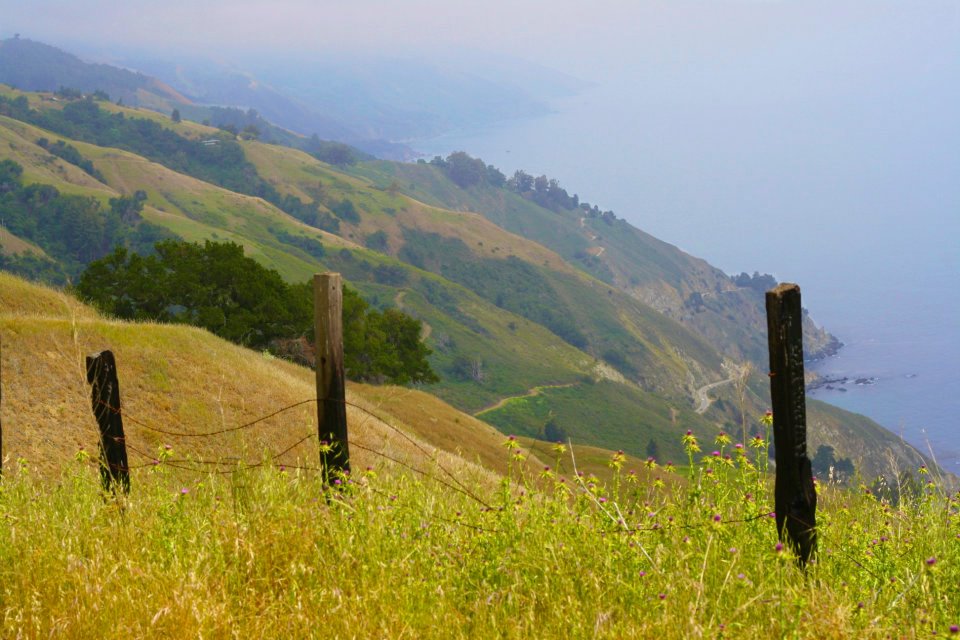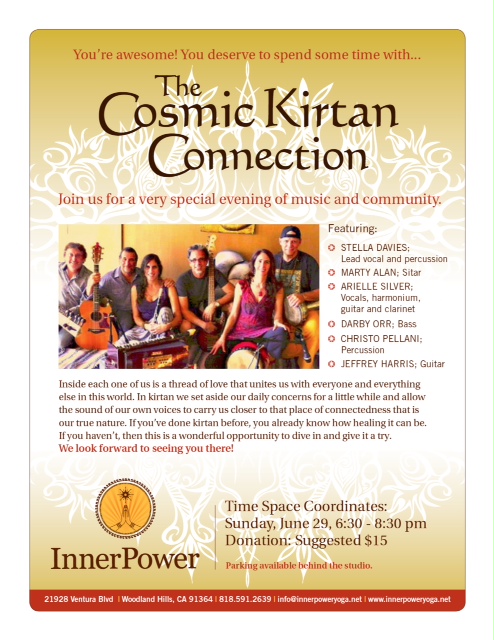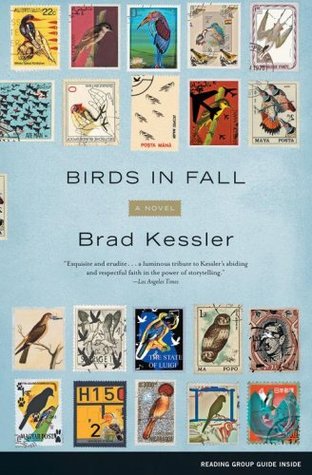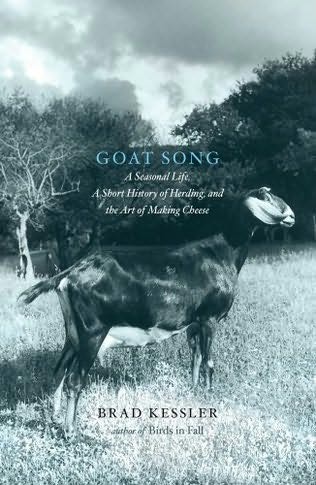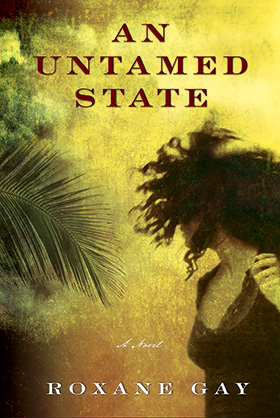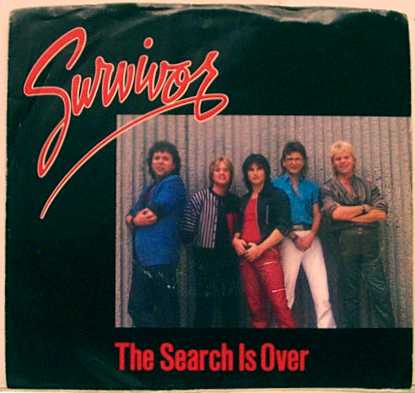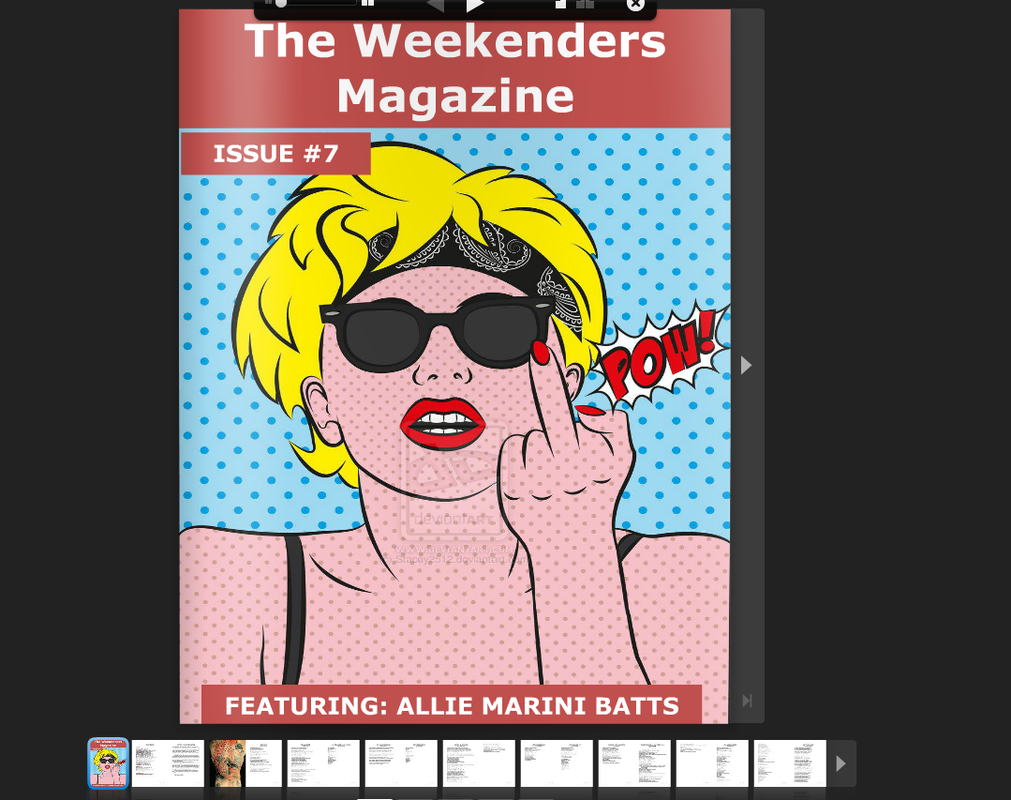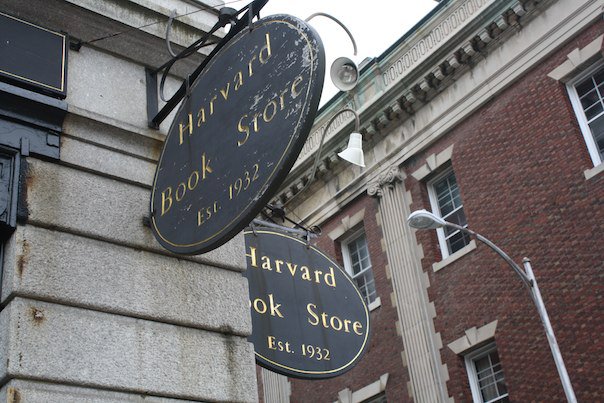|
This post appeared in the online journal Lunch Ticket on June 27, 2014:
http://lunchticket.org/mfa-myths-artist/ They say cardio is the first to go, which I suppose explains last evening's huffing and puffing through my first run since the day before residency began. Normally I'm a runner - around 25 miles a week - but last night it was hard to tell. Each step on the asphalt was foreign. My lungs were weak. Despite what the passing cars may have seen, I was the Stay Puft Marshmallow man. The first time I heard "M.F.A.; My Fat Ass" was at a closing event at the end of last term where the graduating students spoke a few words reflecting on their journey through the program and, particularly, how they fared in the final semester. A fiction writer with a lighthearted countenance and an admittedly soft middle offered the above definition of the degree he would be awarded the following day. His cohorts chuckled in agreement. That's all I remember about him, but it struck a chord, and I made a silent note-to-self. We writers do, after all, sit a lot. But just like writing, exercise has been a savior for me. We could get into self-image and how women are depicted in the mass media, we could even get into childhood issues--blah blah blah--but the fact is, what's done is done. I am a woman in this culture, with this upbringing, with this mind chatter. The antidote has been physical activity. Running, yoga, cycling, hiking -- whatever it is, the mind chatter changes from This body is not good enough to Damn, I am grateful for this body. Physical movement quiets my mind chatter. Every time I hear "M.F.A. = My Fat Ass", I cringe. Admittedly, during the 10-day residency our schedules are tight. A single day at residency looks like this: hour commute, followed by an hour blogging, two in seminar, a (seated) lunch, another seminar, a workshop, perhaps dinner, and a two hour evening reading with four graduating student writers and one featured guest writer. Then the commute back home. Nine days of it. Thirty miles driving. My body moved barely an inch. I’m not whining though – the residency rocks – but what about the other five months of Project Period? For me at least, at times of my life when I’ve been particularly sedentary, it’s more of outlook than schedule. There are a ton of myths about being an artist. And just like the media's image of women, I have at times bought into those wonky narratives. Hook, line, sinker. * * * Myth #1: Poor artists. Ten years ago I was in another graduate program. (Some people buy cars; I collect almae matres.) Berklee College of Music gave me some scholarship money; I packed my bags. Instead of finding $75 for a soft-shell guitar bag, I bolted industrial-strength straps made to move pianos onto my hard-shell case and carried the weight on my back like a tortoise. Instead of picking up a long, warm coat for the Boston winter, I shivered in my leather motorcycle jacket, which was just long enough to assist the freezing rain in sliding down my back and soaking my jeans from belt to boots. I was broke. Adamantly broke. Myth #2: Starving artists. At Berklee, dinner was usually rice and beans; breakfast was rice pudding from the leftovers. My roommate and I split $200 for food each month. The mono-nutrient diet upset my belly and my energy was low but when I caught my roommate spending $2 for a slice of pizza between classes -- 1% of our food budget for the month on one meal -- I nearly slid into a rage. I stomped home and sulked over another Tabasco-doused rice bowl. Myth #3: You need to suffer for your art. I walked two miles to Berklee each day, through the snow, uphill both ways, barefoot. Okay, it’s a bit hyperbolic, but you get the gist. Each day my shoulders were burdened with instruments like my body was a pack mule. Every day that damn guitar case tried to kill me. Myth #4: Talent is innate and "making it" is a concept only available to a privileged few. All my classmates were rockstars or the offspring of rockstars. Talented. Beautiful. On their way to successful careers doing exactly what they were born to do. I, on the other hand, was a folk-singing daughter from a very normal family. I wasn't a prodigy, nor were my parents. My pedigree, I believed, would be my ultimate handicap. Not surprisingly, despite graduating with honors, then signing, recording, and touring, the way I burned out was less like a Bacchanalian feast of cocaine and backstage groupies, and more like a balloon flying through the air, coming untied, and simply dropping to the ground, useless, spent. It took me years to realize I had done it to myself: I had bought the myths. * * * Things are winding down here in low-residencyland. Those of us not graduating have already disappeared into an online world called Project Period. During the next five months we will strain to stay connected through Sunday check-ins, monthly reading conferences, Facebook groups, occasional coffee dates for the locals, and, most celebrated, through online magazines and literary journals where, hopefully, we'll see our colleagues' bylines. Writing is a solitary activity, but the residency stokes a warm campfire. The re-entry back to day jobs and family life is welcomed, but strange. Mostly, it is a welcome return to normalcy. I’m looking forward to reconnecting with my family, catching up on sleep, eating a simple meal at home. Basically, finding balance between mind, body, and spirit. And at the top of my to-do list is exercise. Over the past eight days, my thighs have become a wee bit bigger. My belly is somewhat more rotund. And oh, my hips, my hips, my hips. Thankfully, the mind chatter hasn’t started, but I’m not going to wait for it. I don’t buy into the artists myths anymore. It’s possible to live the creative life as an artist and the balanced life of a healthy human. Even as we make time to write, eat, sleep, we must make time to care for our physical bodies. They carry us through this creative life. They are the only true vehicle we’ll ever have. Family, home, paychecks. Heartbeat, breath, sweat. Body, mind, spirit.
0 Comments
Out beyond ideas of wrongdoing and rightdoing,
there is a field. I'll meet you there. Jelaluddin Rumi - 13th century Middle school is full of toxic pre-teens. I know most of them are ultimately good people trying to work out their confused pre-teen crap, but it can be painful. You'd think that by graduate school toxic personalities would have softened, or at least melted into a puddle of nothing worthwhile, left by the dump behind the cafeteria. You'd think those personalities certainly wouldn't find their way into a program, at least not one like a Master of Fine Arts in Creative Writing. You'd think that life would have thrown them enough curveballs to show them that a pattern of burning bridges, of writing publicly about petty personality judgments, of attempting to skewer the very community -- the MFA program, the greater literary community , etc -- that is in place to bolster us all up will not come to any good. You'd think. My oldest stepdaughter finished middle school a few weeks ago. I dare say, if she didn't finally learn quadratic equations, didn't run the P.E. mile in under 9 minutes, didn't memorize how to build a major triad or find the relative minor, I hope she learned how to walk away from drama llamas. Looking back on my own middle school years, I can hardly recall my own experiences with this. I had forgotten, I suppose, how cruel kids can be. No doubt my super bright, super cool, super gorgeous middle schooler was only attacked out of jealousy. Hell, if I were a middle schooler with her, she's the girl I'd want to be. But still, at thirteen how can she have this perspective? Even with her graceful confidence, how can she know, truly, how awesome she is? She's got thirteen years of life on this planet, eight years of school under her belt. Over the past three years, whenever she came home burning in the shame of careless words, stewing in anger at the latest antics of the mean girls, teary about shifting social groups, we tried to remind her that the only one who can truly assassinate her character is herself. We taught her to know her center, to know herself, to not worry about the negative energy others might try to pull her into. We tried to help her temper her fire, rise above, stand in the beauty of her own true nature. As her father says, Take the high road. There's less traffic up there anyway. And yet, there are some who manage to squeeze past the middle school graduation stage, manage to squeak through high school, college, perhaps employment. Perhaps they land, with a particularly wicked pen, in an MFA program in creative writing. There are some who carry their toxicity with them through their life, and I imagine that these particular people must find some benefit along the way. Perhaps they are of the camp that any attention -- even negative -- is good. Perhaps they think that they are honing their craft by dwelling on dark emotions. Perhaps they think that there is a place for them in this world. And perhaps, standing with colleagues at an MFA gathering, drinks in hand, schmoozing among their classmates, they believe that their fellow writers are unaware of their online blog posts. Perhaps they believe their classmates do not mind, or that they might even applaud the way they suck camaraderie out of a room. Maybe they believe there is a volley that can ensue: they throw toxic waste from their blog, and the writer who has been lambasted then throws toxic waste from their blog, back and forth like a tennis match. Perhaps they believe this is a way to make friends. And yet they are wrong. They are wrong because we have all been to middle school, and all of us (except this type) have learned that toxic waste dumps are no place to hang out. We all (except, of course, the drama llamas) choose to spend our lives being inspired, building community, focused on our work, finding writers who we admire, and reading their work. We choose to be the bolsters, because we trust the process and know that when we lift up others, others lift up us. We choose the high road, above the muck of people who prefer to wallow in waste. We find that despite the fact we are all on this road – the high road--, it does not feel crowded. There’s spaciousness. The path is clear because we are moving forward, helping each other along the way. And truly, the view from up here, at times, can simply take your breath away. I feel human again, a state I much prefer to the walking zombie version of myself that I've embodied the past two days. Sadly, though, to refind myself I had to miss last night's readings. These nightly events are a highlight of the residency, a time to listen to my colleagues' and some faculty work and match names with faces, but my Monday meltdown had run into Tuesday and classmates were beginning to ask if I was feeling sick. I wasn't, but I desperately needed rest. Ten hours in my darkened bedroom of sleeping/waking/sleeping seems to have been just the medication I needed. Today: bright eyed, bushy tailed, so to speak.
Despite my exhaustion, though, my mind has been clear. Like last term, my experience this time is that I am becoming a better writer by just being here at the residency. (Whether that is reflected in these rushed early morning posts is another story.) Even in seminars more geared to other genres -- Monday I sat in on Janet Fitch's seminar about dialog in fiction -- I am absolutely deepening my understanding of things I already do well and/or issues that come up in my writing that have not felt authentic. Authenticity, it seems, is perhaps the number one key to good writing. Yesterday, however, was less about craft and more about other aspects in a writers life. The day was filled with seminars on agents, developmental and copy editing, and literary citizenship. The latter was and is, to me, deeply interesting. I've previously written here about one of my MFA colleagues -- Allie Marini Batts -- and I want to properly celebrate her both as a writer and as a champion for vibrant literary communities. She is so prolific in her writing, and so passionate about wholeheartedly participating in the community, that it is difficult to know what link to provide. Here is a start. Allie is receiving her degree this term, and as a graduating student presented a twenty minute lecture at this residency. She could have discussed any aspect of poetry, fiction, and nonfiction writing, but, not surprisingly, instead delivered a passionate and well-prepared lecture on the imperative need, if we are to be writers in the world, for us all to read, buy, and promote other writers. We need to write, yes, but we need, desperately, to read. To encourage others. To connect. The act of writing is a solitary activity, but writing is not a one-way relationship. A writer needs readers. Readers need writers. Like in issues of craft, I believe authenticity is also the number one key to good literary citizenship. We must read what we like to read. Connect with other authors with whom we feel a connection. Frequent bookstores that we love. This is not high school, and there is no room for ego in a discussion of authentic relationships. We must applaud writing that moves us, send out links to our friends when we are touched, write letters of support to authors whose essays strike us in one way or another. In this day of online communication and social networking, we must go beyond our isolated laptop. While reading writers that we admire, we ourselves improve. And by reaching out to them, we begin to weave a web of interconnection of support, encouragement, growth. Yesterday was Meltdown Monday.
It was exactly the way it plays out in movies about high school when the list of who made the team or the spring play gets posted in the hallway. The hopefuls crowd around the post, straining their necks to see around their classmates. There are high fives and tears, celebrations and breakdowns. The equivalent here is the mentor selection. The list is taped to the wall outside the Program Office at 1pm. I actually missed the crowd since my seminar didn't get out until 2:30. I thought of sneaking out "to the bathroom", but skipping out of class or needing to hear news at the very moment it breaks is not my style. So at 1pm, I simply glanced at the clock on the wall and then turned my attention back to the discussion. At 2:34pm I read the news that I was selected to study with one of my top choices for mentor this semester. I got what I wanted. And then I proceeded to have a complete meltdown. As my eyes scanned the list once, then twice, I felt my mood plummet. There were some compounding circumstances having to do with almost no sleep since last Wednesday, low blood sugar, and a poorly made salad at the little sandwich shop here on campus. It's all ridiculous, really. There's no place I'd rather be than here, now, and the mentor I was assigned to is exactly the person I had been hoping for since attending her seminar and reading last semester. So, this is what it's like at a low residency MFA program. Months and months of silence, working alone, feeling disconnected to my fellow students between the monthly reading conferences. Reading reading reading, writing writing writing. And then an intense two weeks of running ragged, pressing inspiration and ideas into my mind like flower petals, hoping their vibrancy will linger at least until I have a chance to re-type my notes. Just now, on my way into the lounge to jot down these thoughts, I passed a colleague in the courtyard. She was resting on a bench under the stand of sequoias, reading. She offered a seat for me, but I was on my way here to write. I know how comforting the sequoias are. I know how peaceful I feel in the moments I steal to be outside in the soft breeze of the natural world. And yet I choose each morning to hole up in this fluorescent lit room, staring at my MacBook screen, typing out my moods and thoughts about the day before. I know how to nurture myself, and yet I put it aside because I am hungry to grow, thirsting to develop this craft, yearning to write in a way that reaches deep down through muck and pull up gems, to write in a way that heals my personal hurts while touching someone else, helping them to heal. When I teach yoga, I end every class with the same prayer: May I be at peace. May my heart remain open. May I know the beauty of my own true nature. May I be healed. May I be a source of healing in the world. It is a question of balance, and sometime balance does not mean standing on both feet. It means wobbling, leaning far out to the side, getting knocked off my center, and then finding my way back. I want to grow, and so need to reach beyond my normal range. Later, next week, I'll catch up on sleep, eat well, get to my yoga mat, go for a run at the park, and find my way back to normal. This, at least for me, is the beauty of my own true nature. I go out on limbs; I sometimes melt. May I be at peace. Yesterday, when I went to see Brad Kessler, my mentor from last Project Period, he put down his sandwich, opened his arms wide, shrugged his shoulders -- "Tunafish sandwich" -- and gave me a hug. We sat for some minutes - ten? twenty? I gave him homemade thin mints, a small token of appreciation for the time and thought he devoted to my writing this past semester. We discussed my upcoming term, potential topics for the five-page critical paper I'll need to write in the coming months, and which mentor might be good for me in this next Project Period.
How do I say this without sounding inappropriate, without innuendo? Much of last night, I dreamt of Brad. The dreams were filled with other people, and also food -- we were to make a meal or have a celebration or something. I was a student, and through my dreams I was trying to find him, trying to find some time to learn from him. I trailed him into the kitchen, I offered to help chop. Isn't this strange though? I myself am a cook; people come to me for lessons. Not so say I am an expert at all things food, but isn't it a strange setting for this dream? And yet, food is nourishment. I cook to offer comfort or love to others. I am not a true culinary artist, despite the pride I take in my cakes and pies. They are just stand-ins for my need to show love in a way that feels appropriate toward strangers, toward acquaintances, toward friends. I saw Brad last night at the evening's readings. He was there with the featured reader, White Oleander author Janet Fitch. At the end of the night I introduced him to Darby whom he has heard a lot about through my writing and weekly check-ins. It's strange to have so many people shake hands in introduction to Darby with a look of familiarity in their eyes, but that is the kind of writer I am: I write about the personal because I have this gut instinct that within our specific experiences there are universal connections. So when my mentor met Darby last night in person for the first time, there was a two-way look of recognition -- both have heard a lot of each other, and yet how strange! I have barely spent more than a few hours in the same room with Brad, and we have rarely spoken about anything outside of my writing. We creative non-fiction writers are odd folk. How few conversations we have with each other, and yet how much we know about each other's lives and interior experiences. My dreams last night were also about chasing. I was trying to find Brad, trying to get in the same space as him, trying to learn from him. I woke with an aching desire for the semester and this relationship to continue. Let me be clear: these are not romantic notions. I am easily able to separate admiration and desire, and Brad is an exquisite writer, an insightful teacher, and a kind person. But, I have true affection for him and it saddens me to move on. There is still so much I want to learn from him. Yet the way this program is designed, each term we have a new mentor. One thing I know about myself is that I get terribly attached. There are childhood experiences, of course, that I am sure created this trait. But, this is how I am, so remind me of it in six months when I am dreaming of cooking meals with my next mentor. Meanwhile, though, I am full of appreciation for the past six months' opportunity to work with Brad. Even this morning, as my dreams were shaking off, I had a realization from our conversation over the tuna sandwich yesterday. I am suddenly clear on the topic for my five-page critical paper. He's given me gifts of self-awareness and craft-polish that are my constant keyboard companions, and I suppose my task now is to take them with me on the next part of my journey here, with me as I travel with a new mentor/companion. I stole many minutes -- hours, actually -- yesterday morning. I stayed in bed. I had coffee with Darby. We talked, we meandered. It was the second day of the residency, but I wasn't super excited about the early morning presentations and I had a gig later that night, so I lollygagged. Ah, it was wonderful.
I arrived on campus in time for my first orientation to Lunch Ticket, the literary journal here that I intend to work on for my field study requirement. It feels a bit indulgent -- I never did work on my college paper as I secretly wished -- but I wonder why, if I was always intrigued by publishing, why I never did pursue that path. Now's my chance, and since it fulfills the field study requirement, it's even better. I'm a big fan of learning the inner workings of something as a way to become more comfortable in the larger picture. In other words, working on Lunch Ticket will orient me to the inside world of a literary mag. In time I intend to submit my own work to journals. Having a peek into the psychology and layout of the Lunch Ticket organization will, I believe, dilute the mystic -- at least enough to soften my jitters -- of submitting to others. The question, of course, is how on earth does all this fit into my daily life? Adding proofreading and editing or reading submissions or promoting... I have no idea where the time will come from, but I'm a big fan of "take a leap and the net will appear" (or something like that). Some highlights from Day 2: Regarding the importance of first sentences, first paragraphs, first pages (from Peter Selgin): "If the first bite isn't good, there's no need to eat the whole pie." Sentimentality: emotion in excess of experience. (Also Peter.) Roxane Gay's 4 questions to ask when writing a personal essay: 1 - How are you going to bring the reader into your essay? 2 - What are you going to leave the reader with? 3 - Why should they care? 4 - How are you going to bring the reader to care? This post originally appeared in Lunch Ticket on June 12, 2014: http://lunchticket.org/stories-share/
Survivor (as in “Eye of the Tiger”) is to play a free show in Los Angeles later this summer. I stumbled upon this exciting news the other day while browsing Thrillist LA’s list of (they say) every free outdoor concert in LA. It was mid-afternoon, June gloom burned off, the sky clear blue, the asphalt in the parking lot outside my office softening at a warm 90-something degrees. Meanwhile, I sat shivering inside at my desk as I do every afternoon, clutching a mug of jasmine tea and wrapped in my sweater against the AC which blasts like we’re all penguins here and the company means to keep us happy with native habitat temperature. With numb fingers, I jotted down the date of the show and pulled up YouTube for a dance party down memory lane. My favorite Survivor song is still, as it has been for nearly thirty years, “The Search Is Over.” I cranked the volume. My shoulders swayed. I softly sang along. When the tune ended five minutes later, I found a YouTube mix channel to keep me grooving in my cushioned ergonomic-knock-off chair all afternoon. Survivor led to Journey, led to Heart, to Foreigner. It was a totally ‘80s dance party. I want to know what love is, I want you to show me. And then my boss popped his head into my office. “Having a flashback?” he asked, leaning on the door jamb. “You can blame Steven,” I replied. Steven was my first crush. He was smart, cute, a grade ahead of me, and his family’s house was up the street from mine. Maybe because we were heading in the same direction, or maybe because I was younger and someone asked him to ensure I arrived safely, but it didn’t really matter. All that mattered was that Steven walked me home from camp every afternoon the summer before fifth grade. I was a little awkward. I hadn’t yet learned how to be cool in close proximity to a crush. I yearned for the ease of conversation like in pre-school days, before we all differentiated into genders with crush-worthy eyes and unreasonable desires. I longed for a third party to break the ice. Nevermind. I got something better: a song. Steven had a lovely voice. On the winding hills of West Lake Shore Drive, in our Velcro high tops, wet bathing suits hanging from our backpacks, my pony tail swinging, lips red and sticky from the afternoon’s Italian Ices, Steven a shoulder’s width away, he began to sing. How can I convince you what you see is real Who am I to blame you for doubting what you feel I was always reachin’, you were just a girl I knew I took for granted the friend I have in you I spent the summer memorizing the words to the song he said was his favorite, and wondering if there was a secret message he was trying to relay to me through them. The next year I discovered Duran Duran and bought my very first cassette--a-ha—at the mall with some allowance money. Of course I listened to the Beatles, and I had been singing Simon and Garfunkel with my dad since forever. But that summer before fifth grade I was blissfully between kid and tween. Steven was my first crush; Survivor my first band. The story of that summer is embedded in the track. The Search Is Over. I was living for a dream, loving for a moment Taking on the world, that was just my style Now I look into your eyes, I can see forever The search is over, you were with me all the while “See?” I said to my boss after telling him the story. “You can blame Steven for the dance party.” “Music and scents,” he said. “They always bring me back.” Joan Jett began to rock the computer speakers. My boss told me about Amanda and the first band he loved. There’s a little movie of long ago that springs into our minds when we hear a song or smell something familiar. We all have these stories that bang around in our chests, waiting to be tapped with the right reminder. Every event in our lives is recorded in the proverbial black box. Once retold to another, it sparks a memory in the listener whose own story then flutters against his ribs. Look at Humans of New York, or listen to the recordings at StoryCorps. It doesn’t take long to feel blessed to hear the narrative people share. To feel honored to be witness to their stories. To feel connected. Recently, I found myself in a Facebook crossfire between strangers linked through a mutual friend. The strangers were from different states, different times of the friend’s life, and on opposing sides of the political battlefield. Seventy-five comments later, the conversation jumped to another thread like wildfire leaping a fence. The ammunition built as more strangers united by the single friend took sides. Useless clichés and commonplace platitudes were thrown back and forth. Each side barely listened to the others’ shibboleth. We have to have these debates. Our evolution depends on it, and the vitriol is part of the passion. But rhetoric aside, beneath the politics and other dividing lines, don’t we all have the fluttering wings of stories yearning to release? Beyond the hierarchy of supervisors and employees, doesn’t the whiff of Thanksgiving dinner or the bridge of a song recall some elemental, specific, human experience that we each once had? And aren’t they all, despite the nuanced differences, essentially the same? Love. Sadness. Awe. Our humanity is not expressed in politics, but in the narratives of our lives. Humans have shared them with one another since time began. Songs and storytelling have existed in wealth and desperation, from the beginning of history to the present day, in every corner of the globe. The common ground of our shared human experiences is the thread that stitches us together, despite our egos, our dogmas, our fears. If there’s any hope for humanity—not the species, but the spirit—it is here: in the tales of first loves; in the songs that lift our spirits; in the emotions we all know. And in the stories we share. For the past week, my Facebook newsfeed has been a flurry of packing suitcases, road trip photos, last minute loose end knots. It seems we're all trying to cover our foundations, make sure the bills have been paid, the laundry all done, the emails sent, because over the next 9 days there will be no time for the little bits of normal responsibility. School is in session. The residency has started.
People ask me all the time how I manage being in this program while juggling a day job, yoga teaching, music, family, and all the other delicious things that fill up my life. Truthfully, I'm not sure how it all works out. Also, truthfully, it works out because I am committed to it working. And also, my MFA program is a low residency format. I knew when I started flirting with the idea of going back to school for my MFA in Creative Writing that there was no room in my life for a full-time every-day-on-campus type of academic experience. For the first year or so I took online classes at UCLA Extension, but the deeper I got in my writing process, the more I wanted, well, MORE. I wanted steady classmates who were as committed to their work as I am. I wanted mentors. I wanted the structure of an academic environment. And, because I would like to teach Creative Writing, I wanted the degree. Antioch's low residency format is set up for people in scenarios like me. From start to degree, it's four semesters, with an optional post-MFA certificate in Pedagogy and/or further professional development. Each semester is comprised of two parts: a ten-day on campus residency intensive followed by a five-month project period in which we work independently on our writing and communicate with our mentors and classmates online. Today marks the beginning of Residency #2. I left the house early to beat traffic and to leave some time for blogging before my first seminar begins at 9am on First Pages. Later this afternoon I'll attend a seminar on The Art of Translation, which is part of the work I will be doing throughout this coming project period. The day will end with some exciting readings that I have been looking forward to: colleague and gifted writer Allie Marini Batts --- she's prolific and I have no idea what link to share here, so I'll just give you this short story -- , and guest writer Roxane Gay -- remarkable woman, fabulous writer, and also incredibly prolific. Abrupt ending here - apologies - as classmates are arriving and hugs and hellos and catchups... I suppose tomorrow I will have to find a quieter blog spot. (Of course I'm loving the hugs and hellos!) Till later. this piece originally appeared on Lunch Ticket (June 6. 2014), the literary magazine of Antioch's MFA program: http://lunchticket.org/bookstore/ My favorite Boston bookstore—my singular favorite in a city purportedly abounding with more bookstores per square mile than any other—is like a reversed Narnia wardrobe. When I think of it, there’s a wide glowing window display and thirty minutes disappearing faster than a J.P. Licks frappe. Those thirty minutes would be, of course, window-browsing moments. Step inside Harvard Book Storeand delightful minutes in the shop would translate to hours gone by in the outside world.
In my thirteen years as a Bostonian, I often bathed in the warm glow of the Boston Book Store display. Nothing fancy: no bells, whistles, or tourist traps splayed with the university logo. Just a series of windows along the Mass Ave. sidewalk set with new releases, best sellers, and staff picks. Curious portals to new worlds and ideas. Despite the adage, I found cover art mattered. So did font. A book in the window with an interesting cover could pull me through the heavy front door into the stacks. If I didn’t have more than a few minutes on my slushy commute, I’d scrawl titles in my journal. Middlesex. Me Talk Pretty One Day. The Lovely Bones. Often, I did find minutes to spare for an inside browse around current titles. A jaunt downstairs to the used collection. I’d wander around a bit until a cozy section seduced me, and there loosen my scarf, unbutton my coat, let my bag fall to the floor. Sometimes I stood propped against a bookcase as my eyes scanned the spines. Many times I’d tuck away in a corner, fold myself small on the floor, limbs piled together, so other patrons could step over me while I travelled through narratives of other lives, other eras. Time slipped by in those visits. In the face of books and stories, the universe felt endlessly expansive. But, eventually my stomach would rumble and my feet start begging to get out of those damn boots. In the last few minutes I’d stop at my touchstone, Fiction – W: every visit I was sure to check the Jeanette Winterson shelf. I don’t know why I did, but because of her I discovered other writers nearby: Sarah Waters. Alice Walker. Jeannette Walls. Ah, the beauty of a bookstore. All over Cambridge and Boston were independent book and music shops alike, and cafes to sit and read. The streets were lined with shops offering respite from the cold. Shelves stacked with imagined worlds to warm the soul. It was a glorious place to live for a girl like me, amid a culture of people who loved books, music, and cafés. Meanwhile, Starbucks had arrived. Up and down Mass Ave., independent cafes—along with their weekly open mics—began to close down. Napster showed up, and record shops shuttered. Even through this shift, bookstores remained, and I remained oblivious to the corporate restructuring of the book and music industries taking place across the rest of the country. Despite the intellectual colonization that was streamlining America’s interests, Boston’s book and literary culture thrived. Sometime in the mid-aughties, I left New England. I had a combination of bitter cold weariness, dark days depression, and an itch for something new. Barely sure where Los Angeles was in the general scope of “southern California,” I headed west. On the way, my best friend called from San Francisco. “I can’t wait to hear you tell me how much you love February,” she said. Sure enough, two months into SoCal living, I texted her from Santa Monica. It was February. The sun was hot on my shoulders. I was barefoot on the beach. I was smitten with the Golden State. I’ve been in Los Angeles for eight years now. I love this town, and I love February—I’ll shout it from the Hollywood Hills. (I probably have.) There’s inspiration tucked into every side alley. Songs and stories in every guest house. I could write through the endless summer about all the things I adore about this town. But oh, I do so miss those Boston bookstores. Here in L.A. I understand why people leap to Amazon. I understand the one-stop-shop online easy-peasy lemon squeezy la-dee-da. It’s cheap. It’s fast. It’s practical. One Friday evening last autumn I had a hankering for a particular book. I skipped out on a yoga class to hit the library before it closed, but I didn’t check the listed hours and ended up standing alone in the library parking lot staring at the locked entrance. That night I drove the streets of North Hollywood, Burbank, and Studio City, searching for a place to buy my book. The one shop I knew about was open, but on their Barnes & Noble shelves I couldn’t find what I wanted. To reclaim the fruitless evening, I called a friend and the night ended with margaritas. The next day I clicked to Amazon. Now, to be fair, Los Angeles does have bookstores, and a few excellent ones at that. The problem is like good wine, which I try to stay away from it since I can’t afford to be ruined by good taste: Boston spoiled me. Bookstores were part of my daily commute. The city provided independently curated collections every half block. They seduced me even when I had no thought of books in mind. Here in L.A., bookstores are destinations to drive to. Events for which I need to clear my calendar. In Los Angeles I never just happen upon a bookstore. I am never seduced. I suppose this is a call to action. Bookstores in Los Angeles—and perhaps in your town as well—are not just going to set up shop on the broken sidewalk next to our parking meters. They’re coy. They sit in out-of-the-way spots and wait for us to find them. But you remember, don’t you, the way time used to slip as your eyes scanned the spines? The way you stumbled upon new authors because you, like me, had a touchstone in Fiction – W. How you heard your name calling from the covers and the fonts laid out near the front entryway under the bold sign “New Releases”? As it turns out, there is one bookstore near my house. I sometimes bike past The Illiad on my way to yoga. A few months ago, I climbed the ladders up to the top shelves, crooked my head to one side, and read every spine in search of the titles on my semester reading list. It is a used bookstore, and scented with that familiar mustiness of old pages. There are stacks in disarray at the front desk which is attended by delightfully unkempt introverts. I’ve always been torn about buying used books and CDs: no payment for the writer, for the artist. And yet: it is a bookstore. Bookstore means unbuttoning my coat and laying down my bag. It means walking through the Narnia wardrobe and losing myself, unintended, in an ever-expanding universe. In this world of virtual shops and productive shopping, The Illiad is a heaven of exploration and hidden treasures. In the end, I found all but five of the books on my list. For the rest I used the Amazon gift card I received over the holidays. This is the way I intend to do it for now on—local, independent bookstore first, even if it is inconvenient or a little out of the way; independent online retailer second—many brick and mortar stores, including the Harvard Book Store, are also online retailers; Amazon as a last resort. After all, as writers and book lovers, it is not enough to have a stack of tomes next to the bed. We must support our literary culture, and at the very least, find and support one place of book lover refuge nearby. Because some nights are for margaritas. But some are for books. |
Archives
May 2019
Categories
All
|
